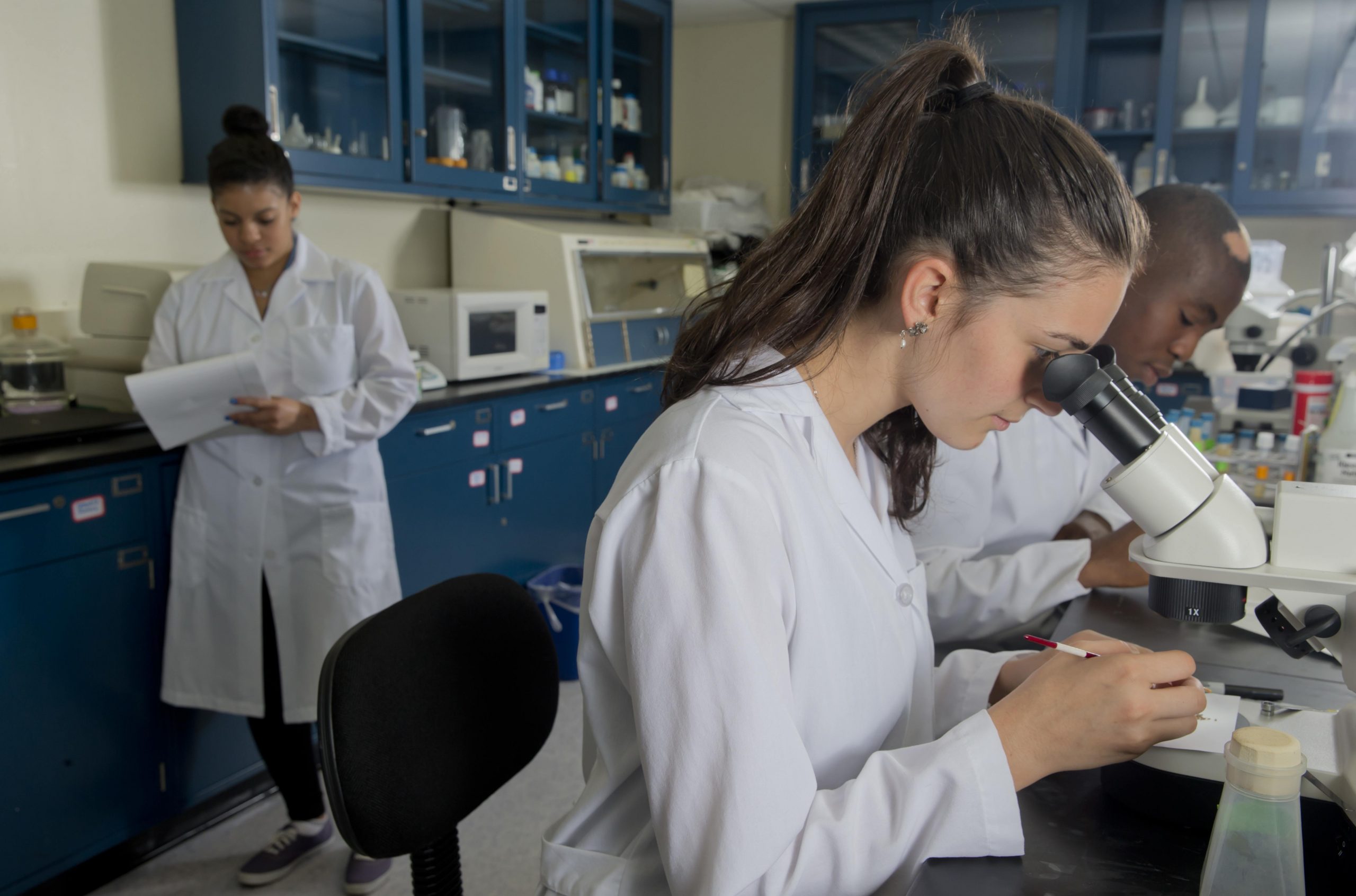Bioscience is an umbrella term for a vast and diverse industry with a number of subsectors. While all of these fields share a similar approach — applying a biological solution to societal problems and issues — each subsector applies their own specialized lens to any given problem.
Understanding the Terms
So you are interested in pursuing a career in the field of bioscience? You’ve completed your undergraduate degree and are looking for where you fit within the broad range of specialties bioscience has to offer. Before applying for an advanced degree program, it is important to know your terms and understand which subsector aligns most closely with your long-term career goals. Let’s take a closer look at three key bioscience specialties: biotechnology, bioengineering and biomedical engineering.
Biotechnology
Those who specialize in biotechnology are primarily focused on developing a product through the use of living systems and organisms. Students with a biotech PhD or master’s degree are often preparing to enter biotech or biopharma, targeting Big Pharma companies such as Pfizer. “We have graduated a number of students who have gone to work for Regeneron, which recently produced the COVID-19 antibody cocktail,” says Professor Thomas Lufkin, graduate program director for Clarkson’s Interdisciplinary Bioscience and Biotechnology program. “More money is spent in biotech research and development than the entire NIH and NSF combined, so there is huge growth potential.”
Bioengineering
Bioengineering shares a lot of similarities with biotechnology, and incorporates engineering design and analysis solutions for specific applications. Students learn the fundamentals of both biology and engineering, making them ideal collaborators with others in bioscience fields. Bioengineering studies can be structured differently depending on the college or university, according to Shantanu Sur, associate professor of biology, sometimes housed within an engineering department, and sometimes a separate combination of departments.
Biomedical Engineering
Biomedical engineering is a subset of bioengineering specifically geared toward medical applications and devices, for example, the machines that check your vitals in the hospital or other medical instrumentation. The creation of life-altering devices such as prosthesis also falls under biomedical engineering. One area that provides a lot of new and exciting opportunities, according to Lufkin, includes hybrid prosthetics that combine human flesh/tissue and materials that are embedded or superficial to make the implant look and feel more realistic.
Choosing a Specialization That is Right for You
No matter which specialization you choose, many students go after an advanced degree before entering the bioscience industry to build specialized skills and increase earning potential. If you are seeking an advanced degree, it is safe to assume that you already have some form of a basic biological undergraduate degree and some research experience. When it comes to determining how to drill further down and select a particular track, it is helpful to know what your strengths and weaknesses as well as what you may be interested in.
Students who pursue an advanced degree in biotechnology have a strong background in a variety of areas including cell biology, molecular biology, statistics and mathematics. Those considering bioengineering or biomedical engineering paths require an engineering background and may already have an undergraduate degree in chemical or biomedical engineering.
Regardless of the specialization, a bioscience degree can be applied in a variety of ways and lead to a number of different career paths. Some PhD students seek a career in academia, vying for a tenure-track teaching position by conducting post-doctoral work, while others might transition directly into industry.
Most commonly, however, students in this field of study (master’s students included) have their eye on the more competitive and lucrative path of working at a biotech/biopharma firm. Within this area of the industry, you can further narrow your path depending on your interests. Whether you are interested in the prestige and notoriety of working for a Big Pharma company or the creative freedom of a smaller biotech startup, an advanced degree in one of the biosciences is sure to provide you with many opportunities and directions to choose from.
Why Study at Clarkson?
At Clarkson, we are strong believers in our interdisciplinary approach. While many schools have separate departments for each area of bioscience, our Interdisciplinary Bioscience and Biotechnology program brings together faculty with a wide diversity of expertise. This provides our students with the opportunity to build both the specialized knowledge and the technical skills needed to address complex problems in the biosciences.
The goal of the IBB program is to provide a collaborative learning environment. Instead of limiting students to a traditional path, we encourage students to pursue research that explores the intersections of biology, chemistry and engineering, often supported by two or three faculty advisors who specialize in different areas. Our small student to faculty ratio will empower you to explore your specific area of interest that draws on your unique background and addresses your career goals.
We offer both a master’s program and PhD program. Most master’s students begin their studies right after their undergraduate degree and complete the program within one year, significantly increasing their earning potential. Our PhD students study for an average of four years. In many cases, they have completed a master’s degree and may have work experience in the biotech or biomedical industry. Ready to join a program that will support your research interests in bioscience? Explore the IBB curriculum.

